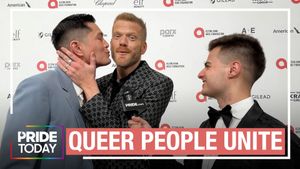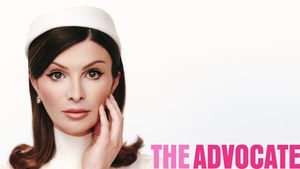Guadalupe Benitez
claims that after being treated with fertility drugs
for nearly a year, her Christian doctors refused to
inseminate her because she is a lesbian.
She sued, and a
San Diego County trial judge sided with her. But an
appeals court reversed the ruling, and her lawsuit is
scheduled to be heard by the California supreme court
this week.
The case is being
watched closely by civil rights and physician groups
who think it could have consequences for other medical
procedures, including abortion and end-of-life
decisions.
''There is
confusion among many health care providers who believe
doctors have the freedom to pick and choose their
patients,'' said Jennifer Pizer, an attorney with the
gay rights legal group Lambda Legal who represents
Benitez. ''But doctors' ethics may not be exercised in a
discriminatory way.''
Benitez, now the
mother of a 6-year-old boy and 2-year-old twin girls,
sued Vista-based North Coast Women's Care Medical Group
under a state law that prohibits for-profit businesses
from arbitrarily discriminating against clients based
on characteristics such as race, age, and sexual
orientation.
The appeals court
noted that at the time Benitez sought treatment,
California civil rights law still allowed businesses to
restrict their clientele based on a customer's marital
status, and Benitez's doctors claimed the main reason
they would not treat her was because she was
unmarried.
Attorney Robert
Tyler, who is representing the two North Coast doctors,
said Benitez's claim that the physicians had a duty to
inseminate her would be more convincing if the
disputed procedure were a lifesaving measure instead
of an elective one.
Tyler said the
doctors acted compassionately and ethically, referring
Benitez to the fertility specialist who succeeded in helping
her get pregnant and offering to pay the extra costs.
''Here, the
doctors are being asked to create life. Why shouldn't they
be allowed to let their faith be an important part of
their decision-making as it relates to either choosing
to perform a procedure or referring the person to
another physician who is willing to perform the procedure?''
he said.
Peter Ferrara,
general counsel for the Virginia-based American Civil
Rights Union, said regardless of what the doctor's reasons
were for refusing to inseminate her, a ruling in
Benitez's favor would set a dangerous precedent.
''If you have a
genuine moral issue raised, as in this case, you have to
recognize the rights of both parties,'' said Ferrara, who
filed a friend-of-the-court brief supporting the
doctors.
Requiring them to
act in violation of their beliefs ''is a discriminatory
resolution, and it discriminates against Christians,'' he
said.
The American
Civil Liberties Union, California attorney general Jerry
Brown, the National Health Law Program, and the Gay and
Lesbian Medical Association filed papers backing
Benitez.
The doctors are
backed by the Islamic Medical Association of North
America, the Christian Medical and Dental Associations, the
California Catholic Conference, the American
Association of Pro Life Obstetricians and
Gynecologists, and Americans United for Life.
The California
Medical Association initially sided with the doctors but
reversed its position after coming under fire from gay
rights groups.
Benitez, 36, said
she and her partner decided to pursue the case because
they wanted to prevent other couples from suffering the
disappointment and humiliation they did.
''Even now I
still have reservations when I go to a new doctor,'' she
said. ''The first question we ask each other is, 'Do you
think they will have an issue and not take into
consideration at all that we are a normal family like
anyone?'''
Pizer said that
while doctors can opt out of performing certain
procedures on religious grounds, they cannot exclude
medically eligible patients from the services they do
provide.
''If a doctor in
good conscience can't provide good medical care, that
doctor should not be in that field,'' she said. ''If a
person isn't willing to provide the care the person
needs, they shouldn't be wearing the lab coat.'' (Lisa
Leff, AP)













































































